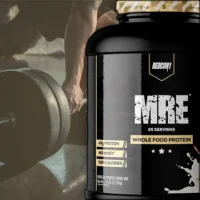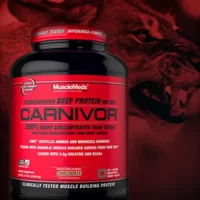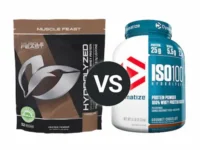Knowledge BaseYou're Questions Answered
Is beef protein powder better than whey?
The question of whether beef protein powder is better than whey protein depends largely on individual dietary needs, allergies, and personal health goals. Both beef protein and whey protein offer distinct advantages and may be preferable under different circumstances.
Beef Protein Powder: Beef protein powder is made from beef that has had almost all of its fat and carbohydrates removed. It is a good option for those looking for a protein source that is lactose-free and low in allergens. Beef protein is rich in collagen and gelatin, which supports joint health, and generally has a higher content of the amino acid creatine than whey. Creatine can enhance strength and power, making beef protein popular among athletes looking to improve performance (1).
Whey Protein: Whey protein is derived from milk and is a by-product of the cheese-making process. It is highly regarded for its range of essential amino acids, which are absorbed quickly and efficiently by the body, making it a favorite for post-workout recovery. Whey protein promotes muscle protein synthesis better than most other protein types, which is crucial for muscle growth and repair (2).
Comparative Benefits:
- Digestibility: Whey protein is generally easier to digest than beef protein due to its lower collagen content.
- Absorption Rate: Whey protein is absorbed more quickly, making it ideal for post-exercise recovery.
- Nutrient Profile: Beef protein may provide nutrients like iron and vitamin B12, which are less abundant in whey protein.
- Lactose Content: Beef protein is naturally lactose-free, unlike whey concentrate, which makes it suitable for lactose intolerant individuals.
- Use Case: Whey is typically preferred for quick absorption needs, such as post-workout, whereas beef protein might be favored by those looking to increase their intake of general health-supporting nutrients and who may need a hypoallergenic option.
The choice between beef protein powder and whey protein should be based on your specific health needs, dietary restrictions, and fitness goals. Consult with a healthcare provider or a nutritionist to make an informed choice that aligns with your dietary needs (3).
- Hoffman, J. R., & Falvo, M. J. (2004). Protein – Which is Best? Journal of Sports Science and Medicine, 3, 118-130.
- Phillips, S. M. (2014). A brief review of critical processes in exercise-induced muscular hypertrophy. Sports Medicine, 44(Suppl 1), S71-S77.
- Clark, M., & Slavin, J. (2013). The effect of fiber on satiety and food intake: a systematic review. Journal of the American College of Nutrition, 32(3), 200-211.
Related Questions
Related Reviews

Your Answer
We are a participant in the Amazon Services LLC Associates Program, an affiliate advertising program designed to provide a means for us to earn fees by linking to Amazon.com and affiliated sites.






